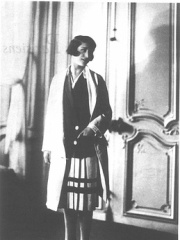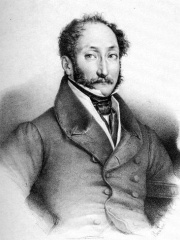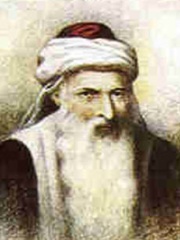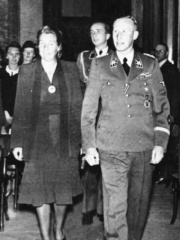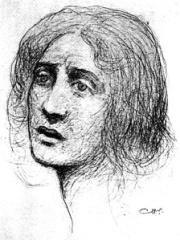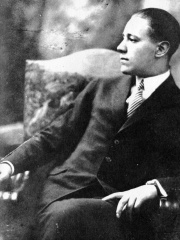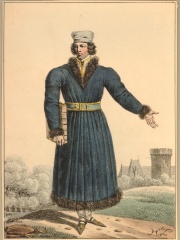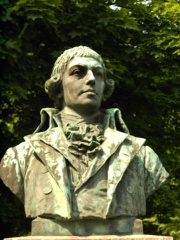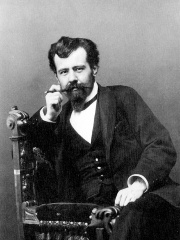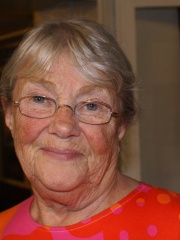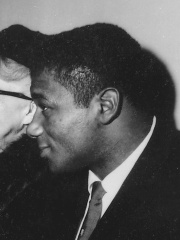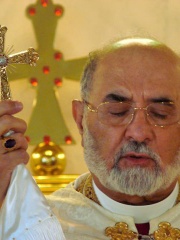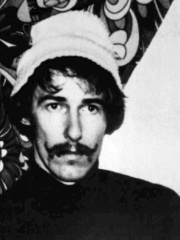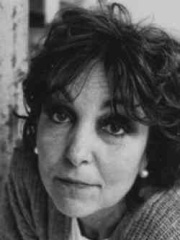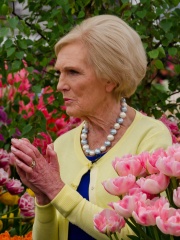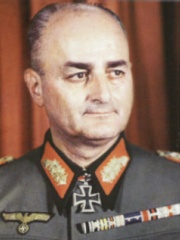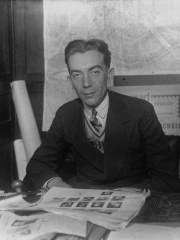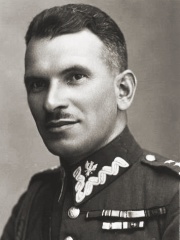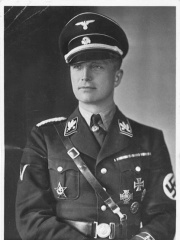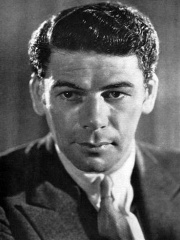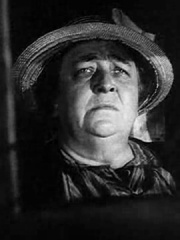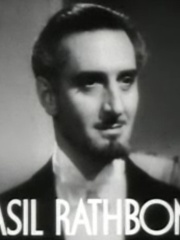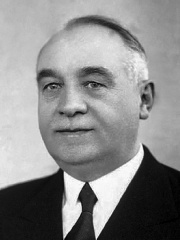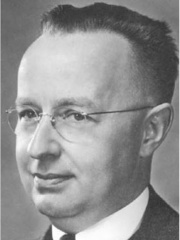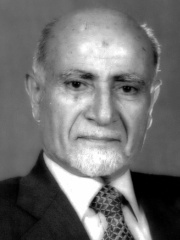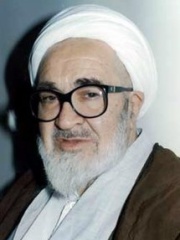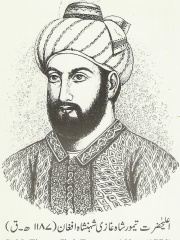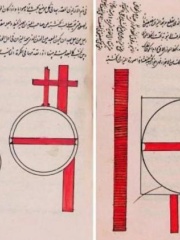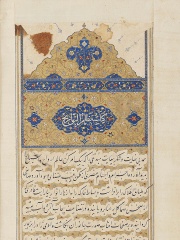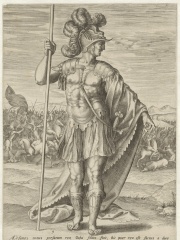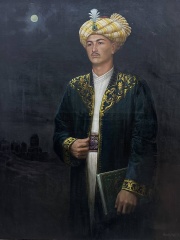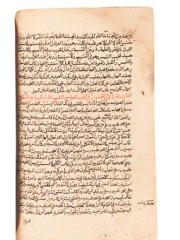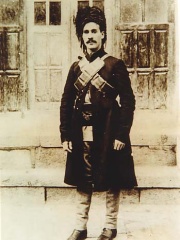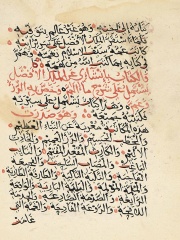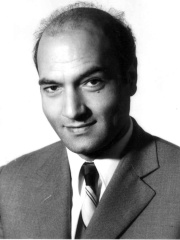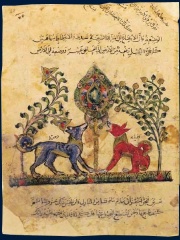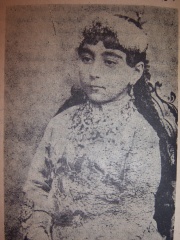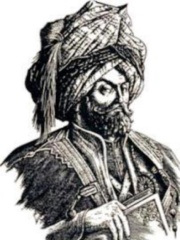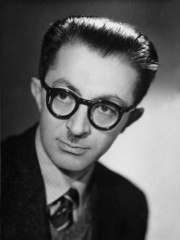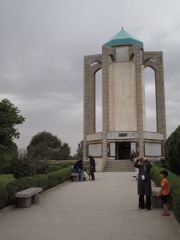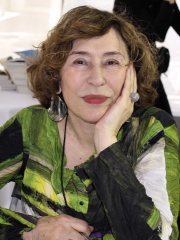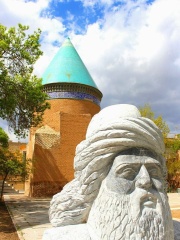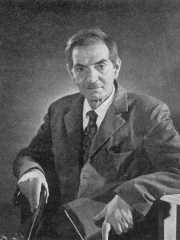WRITER
Forough Farrokhzad
1935 - 1967
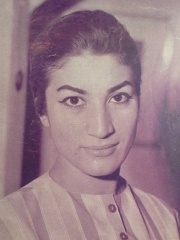
 Forough Farrokhzad
Forough Farrokhzad
Forugh Farrokhzad (Persian: فروغ فرخزاد; 28 December 1934 – 14 February 1967) was an influential Iranian poet and film director. She was a controversial modernist poet and an iconoclastic, feminist author. Farrokhzad died in a car accident at the age of 32. Read more on Wikipedia
Her biography is available in 47 different languages on Wikipedia (up from 45 in 2024). Forough Farrokhzad is the 1,562nd most popular writer (down from 1,158th in 2024), the 188th most popular biography from Iran (down from 149th in 2019) and the 19th most popular Iranian Writer.
Memorability Metrics
Page views of Forough Farrokhzad by language
Among WRITERS
Among writers, Forough Farrokhzad ranks 1,562 out of 7,302. Before her are Al-Khalil ibn Ahmad al-Farahidi, Banine, John Brunner, Shammai, Felice Romani, and Joseph Karo. After her are Lina Heydrich, Al-Khansa, Ödön von Horváth, Jean de Meun, Gottfried August Bürger, and Hermann Bahr.
Most Popular Writers in Wikipedia
Go to all RankingsAl-Khalil ibn Ahmad al-Farahidi
718 - 790
HPI: 64.98
Rank: 1,556
Banine
1905 - 1992
HPI: 64.98
Rank: 1,557
John Brunner
1934 - 1995
HPI: 64.97
Rank: 1,558
Shammai
50 BC - 30
HPI: 64.97
Rank: 1,559
Felice Romani
1788 - 1865
HPI: 64.97
Rank: 1,560
Joseph Karo
1488 - 1575
HPI: 64.96
Rank: 1,561
Forough Farrokhzad
1935 - 1967
HPI: 64.95
Rank: 1,562
Lina Heydrich
1911 - 1985
HPI: 64.95
Rank: 1,563
Al-Khansa
575 - 645
HPI: 64.95
Rank: 1,564
Ödön von Horváth
1901 - 1938
HPI: 64.95
Rank: 1,565
Jean de Meun
1240 - 1305
HPI: 64.93
Rank: 1,566
Gottfried August Bürger
1747 - 1794
HPI: 64.93
Rank: 1,567
Hermann Bahr
1863 - 1934
HPI: 64.93
Rank: 1,568
Contemporaries
Among people born in 1935, Forough Farrokhzad ranks 89. Before her are Maj Sjöwall, Ken Kesey, Jack Kemp, Floyd Patterson, Samak Sundaravej, and Dinkha IV. After her are John Phillips, Charles Duke, Paula Rego, Mary Berry, Ján Popluhár, and John G. Avildsen. Among people deceased in 1967, Forough Farrokhzad ranks 78. Before her are Günther Blumentritt, Marcel Aymé, Roger B. Chaffee, Primo Carnera, Osvaldo Moles, and Stanisław Sosabowski. After her are Josias, Hereditary Prince of Waldeck and Pyrmont, Paul Muni, Jane Darwell, Basil Rathbone, Hans Ledwinka, and Walter A. Shewhart.
Others Born in 1935
Go to all RankingsMaj Sjöwall
WRITER
1935 - 2020
HPI: 65.32
Rank: 83
Ken Kesey
WRITER
1935 - 2001
HPI: 65.21
Rank: 84
Jack Kemp
POLITICIAN
1935 - 2009
HPI: 65.14
Rank: 85
Floyd Patterson
BOXER
1935 - 2006
HPI: 65.12
Rank: 86
Samak Sundaravej
POLITICIAN
1935 - 2009
HPI: 64.99
Rank: 87
Dinkha IV
RELIGIOUS FIGURE
1935 - 2015
HPI: 64.98
Rank: 88
Forough Farrokhzad
WRITER
1935 - 1967
HPI: 64.95
Rank: 89
John Phillips
MUSICIAN
1935 - 2001
HPI: 64.86
Rank: 90
Charles Duke
ASTRONAUT
1935 - Present
HPI: 64.81
Rank: 91
Paula Rego
PAINTER
1935 - 2022
HPI: 64.79
Rank: 92
Mary Berry
WRITER
1935 - Present
HPI: 64.78
Rank: 93
Ján Popluhár
SOCCER PLAYER
1935 - 2011
HPI: 64.76
Rank: 94
John G. Avildsen
FILM DIRECTOR
1935 - 2017
HPI: 64.68
Rank: 95
Others Deceased in 1967
Go to all RankingsGünther Blumentritt
MILITARY PERSONNEL
1892 - 1967
HPI: 65.63
Rank: 72
Marcel Aymé
WRITER
1902 - 1967
HPI: 65.59
Rank: 73
Roger B. Chaffee
ASTRONAUT
1935 - 1967
HPI: 65.48
Rank: 74
Primo Carnera
BOXER
1906 - 1967
HPI: 65.32
Rank: 75
Osvaldo Moles
WRITER
1913 - 1967
HPI: 65.12
Rank: 76
Stanisław Sosabowski
MILITARY PERSONNEL
1892 - 1967
HPI: 65.06
Rank: 77
Forough Farrokhzad
WRITER
1935 - 1967
HPI: 64.95
Rank: 78
Josias, Hereditary Prince of Waldeck and Pyrmont
POLITICIAN
1896 - 1967
HPI: 64.57
Rank: 79
Paul Muni
ACTOR
1895 - 1967
HPI: 64.53
Rank: 80
Jane Darwell
ACTOR
1879 - 1967
HPI: 64.30
Rank: 81
Basil Rathbone
ACTOR
1892 - 1967
HPI: 64.21
Rank: 82
Hans Ledwinka
ENGINEER
1878 - 1967
HPI: 63.95
Rank: 83
Walter A. Shewhart
PHYSICIST
1891 - 1967
HPI: 63.82
Rank: 84
In Iran
Among people born in Iran, Forough Farrokhzad ranks 188 out of 631. Before her are Shapour Bakhtiar (1914), Mehdi Bazargan (1907), Hussein-Ali Montazeri (1922), Timur Shah Durrani (1748), Al-Karaji (953), and Ahmad ibn Rustah (null). After her are Al-Baydawi (1201), Arsames (-550), Abdullah Mirza (1433), Shihab al-Din 'Umar al-Suhrawardi (1145), Sati Beg (1300), and Simko Shikak (1887).
Others born in Iran
Go to all RankingsShapour Bakhtiar
POLITICIAN
1914 - 1991
HPI: 65.16
Rank: 182
Mehdi Bazargan
POLITICIAN
1907 - 1995
HPI: 65.13
Rank: 183
Hussein-Ali Montazeri
POLITICIAN
1922 - 2009
HPI: 65.11
Rank: 184
Timur Shah Durrani
POLITICIAN
1748 - 1793
HPI: 65.02
Rank: 185
Al-Karaji
MATHEMATICIAN
953 - 1029
HPI: 64.99
Rank: 186
Ahmad ibn Rustah
EXPLORER
HPI: 64.96
Rank: 187
Forough Farrokhzad
WRITER
1935 - 1967
HPI: 64.95
Rank: 188
Al-Baydawi
PHILOSOPHER
1201 - Present
HPI: 64.85
Rank: 189
Arsames
POLITICIAN
550 BC - 600 BC
HPI: 64.82
Rank: 190
Abdullah Mirza
POLITICIAN
1433 - 1451
HPI: 64.55
Rank: 191
Shihab al-Din 'Umar al-Suhrawardi
PHILOSOPHER
1145 - 1234
HPI: 64.44
Rank: 192
Sati Beg
POLITICIAN
1300 - 1345
HPI: 64.39
Rank: 193
Simko Shikak
POLITICIAN
1887 - 1930
HPI: 64.38
Rank: 194
Among WRITERS In Iran
Among writers born in Iran, Forough Farrokhzad ranks 19. Before her are Imad ad-Din al-Isfahani (1125), Ali Shariati (1933), Ibn al-Muqaffa' (724), Zahra Khanom Tadj es-Saltaneh (1883), Sharafkhan Bidlisi (1543), and Sadegh Hedayat (1903). After her are Baba Tahir (947), Azar Nafisi (1955), Hamdallah Mustawfi (1281), Mohammad-Hossein Shahriar (1906), Asadi Tusi (999), and Daqiqi (1000).
Imad ad-Din al-Isfahani
1125 - 1201
HPI: 69.16
Rank: 13
Ali Shariati
1933 - 1977
HPI: 69.15
Rank: 14
Ibn al-Muqaffa'
724 - 756
HPI: 68.95
Rank: 15
Zahra Khanom Tadj es-Saltaneh
1883 - 1936
HPI: 67.71
Rank: 16
Sharafkhan Bidlisi
1543 - 1603
HPI: 65.66
Rank: 17
Sadegh Hedayat
1903 - 1951
HPI: 65.47
Rank: 18
Forough Farrokhzad
1935 - 1967
HPI: 64.95
Rank: 19
Baba Tahir
947 - 1032
HPI: 64.12
Rank: 20
Azar Nafisi
1955 - Present
HPI: 63.48
Rank: 21
Hamdallah Mustawfi
1281 - 1349
HPI: 63.06
Rank: 22
Mohammad-Hossein Shahriar
1906 - 1988
HPI: 62.21
Rank: 23
Asadi Tusi
999 - 1072
HPI: 62.12
Rank: 24
Daqiqi
1000 - 977
HPI: 61.64
Rank: 25

